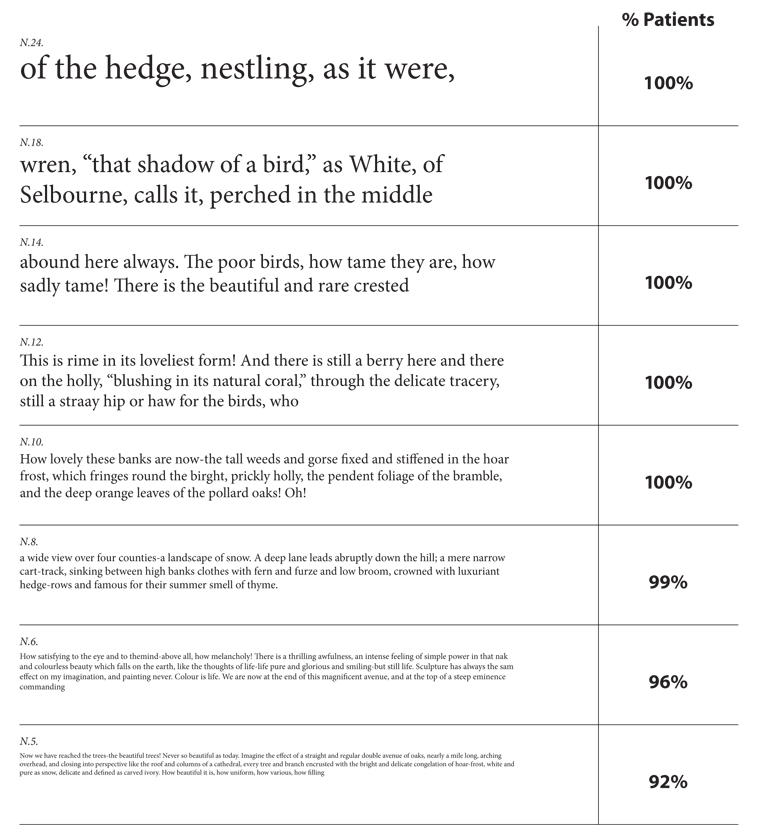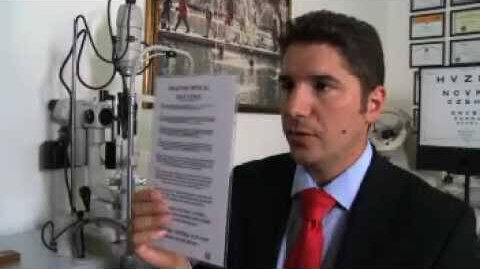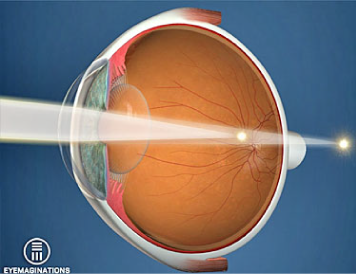Had enough of your reading glasses, bifocals, or varifocals? PRESBYOND® Laser Blended Vision could be the ideal solution for your presbyopia.
Laser Eye Surgery has been successfully treating myopia (short-sightedness) and hyperopia (long-sightedness) for decades. But for much of this time, the procedure was powerless against an error that will eventually affect most of us – presbyopia (ageing eyes). But that’s no longer the case.
What is Presbyopia?
Presbyopia – literally translated as “ageing eye” – is the deterioration of our vision as we age. This natural process typically starts at around the age of 40. As the condition develops, the eye becomes less able to focus at different distances. This is due to the gradual stiffening of the eyes’ lenses and the weakening of muscles that usually allow us to refocus our vision with ease.
A typical sign of presbyopia is a gradual difficulty reading text. You may notice that you are squinting to read your book before bed, or are holding menus further and further away from your face at restaurants… This might work for a while, but eventually you’ll realise that your arms simply aren’t long enough to allow your eyes to focus.
For most people, this is when they will finally give in and pick up a pair of the dreaded reading glasses or bifocals – a painful reminder of the advancing years. But there is another way…
Treating Presbyopia with Laser Eye Surgery
Of course, we can’t stop you from getting older. But we just might be able to help you manage the signs of ageing eyes.
Contrary to what you may have heard in the past, Laser Eye Surgery can be an extremely effective solution to presbyopia. This is thanks to a revolutionary treatment technique called PRESBYOND® Laser Blended Vision. While in the past, surgeons were forced to resort to synthetic lens implants (and many still are), the London Vision Clinic helped to pioneer an alternative option for patients with presbyopia.
PRESBYOND® Laser Blended Visionwas first performed at London Vision Clinic – the first clinic in the UK to offer the treatment – way back in 2011. In fact, our very own founder and expert Laser Eye Surgeon, Professor Dan Reinstein, helped to develop the innovative technique.
It works by adjusting each eye in a different way: While one eye is corrected primarily for distance vision with a little near vision, the other is corrected primarily for near distances.
This may sound a little complicated, but the brain is soon able to adapt to this new way of seeing, creating a “blend zone” that allows you to see clearly across all distances! For most people, this means greatly reducing, or even eliminating, their reliance on reading glasses for many years to come.
London Vision Clinic’s results treating the need for reading glasses (presbyopia)
Short-sightedness up to -12.00 with Presbyopia

Long-sightedness up to +7.25 D with Presbyopia

The Top 5 questions you must ask your laser eye surgeon
No one wants to compromise on their vision. When it comes to Laser Eye Surgery, one of the best things you can do to enhance your projected outcomes is to choose the right Laser Eye Surgeon.
Ideally, you will be able to find a surgeon with the relevant professional training who also has access to the latest technology. Your chosen clinic should also be able to tell you what outcomes they typically achieve with patients who have a similar prescription to your own.
A patient having laser eye surgery on video
Patients successfully treated for presbyopia
Only six hours after the procedure, whilst making myself a tea, I glanced across the work surface and realised that I could actually read the newsprint without my glasses, I could not believe it. Life just got better and better, no more searching for lost glasses when shopping, no more embarrassing moments in restaurants.
Being able to watch television and seeing detail – but best of all being able to programme the machines in the gym! Thank you so much for giving me back 20/20 vision and for taking 20 years off my life.” Adele N, fitness trainer
Thank you very much to staff at the clinic and to Dr Carp for a very thorough pre-surgery consultation, which put my fears at rest. The surgery itself was quick and painless & Dr Carp talked me through each step methodically. One day later, I have no pain and very little discomfort (and good vision!) Grainne M., Lawyer
So if you wear reading glasses, varifocals or bifocals, we can almost certainly help. To find out more, get in touch with one of our friendly clinic coordinators or Book a Consultation today.




